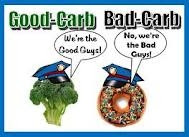I encourage you to really give the purchase of a medic alert bracelet some good thought. Think about each thing you choose to put on it and what the benefits (and risks) could be. Rather than go blindly by common statements that people will tell you to put on them, please consider all the aspects of what you put on the bracelet. Today's post is going to take some of the common statements put on bracelets and explain why they can be a good and bad thing. I've read this on various boards, talk to some medical personnel and heard some of the following information. I admit I blindly went out and bought mine just based on what others told me to do. Ultimately the decision is up to you, but I thought I would at least share what I've learned over the years that has changed my mind on the whole medic alert issue..
Remember that medic alert bracelets are for times of unconciousness - when you cannot speak for yourself. They are designed for FIRST RESPONDERS - paramedics. Realistically, most of the time when we do go to the hospital - even those of us who had RNY and have complications come up, we are totally capable of speaking when we go in. Those of us who do go in to the hospital often have caregivers that do the speaking for us. A well educated colleague, spouse or family member will go much further than having a bracelet speak for us.
So here's the top message that typically RNYers put on their bracelets:
No blind NG tube
RNY Gastric bypass
my surgeons name
ICE phone #
no NSAIDS and no sugar
RNY Gastric bypass
my surgeons name
ICE phone #
no NSAIDS and no sugar
So let me take the time to explain WHY these messages can cause more harm than good.
First of all, if you are going to get a bracelet be sure to put your surgery type and date on them. Not simply "gastric bypass". It is called a Roux En Y. (Not RYN as I see so often!). Putting your surgeon and your surgery date might help although chances are he's not going to remember you much unless you are fresh out of surgery. But it is never a bad thing if your surgeon talks to anyone and explains the surgery to them. That's always a bonus.
The ICE information is always good - in case of emergency call.....
But here's the other thing I see put so many times on RNYer's bracelets that scares me - no aspirin or no NSAIDS. While it is true indeed that we should not be on them long term, there may come a time when I will gladly open my arms to aspirin! If I were to have a heart attack, PLEASE PLEASE give me aspirin!!
Most heart attacks develop when a cholesterol-laden plaque in a coronary artery ruptures. Relatively small plaques, which produce only partial blockages, are the ones most likely to rupture. When they do, they attract platelets to their surface. Platelets are the tiny blood cells that trigger blood clotting. A clot, or thrombus, builds up on the ruptured plaque. As the clot grows, it blocks the artery. If the blockage is complete, it deprives a portion of the heart muscle of oxygen. As a result, muscle cells die — and it’s a heart attack. Aspirin helps by inhibiting platelets. Only a tiny amount is needed to inhibit all the platelets in the bloodstream; in fact, small amounts are better than high doses. But since the clot grows minute by minute, time is of the essence.
Since my own mother had a massive heart attack at age 59, I definitely will risk an ulcer in order to treat a heart attack!! Remember, it's generally a long term use (2 weeks or more) that NSAIDS cause ulcers.
Here's another BIG issue that I want to bring up. The no sugars statement really seems pretty harmless doesn't it? Not so. It could be dangerous. It is a common side effect for many of us after our first or second year post op, to develop reactive hypoglycemia . It's been quoted from 1/4 of us to 3/4 of us will get RH. When you have RH, you bottom out in your sugars and get extremely low. Dangerously low. Guess what you need? Yep, sugars. You need to raise your sugar up back to a healthy level. It is much like people with diabetes having a low. We can appear drunk, wobbly when moving around and having a low. Like diabetics we can become unconsciousness. If I were at the mall and someone noticed this and I started to pass out and they perhaps recognized the signs as being low sugar and were going to treat me, I'd hate for them to look at that bracelet and see "no sugars" and not treat me. Is sugar going to kill me? No. Could not getting sugar kill me? It potentially could.
The thing is that first responders aren't generally going to start giving you food and start feeding you sweet tarts. They are not going to make a point of feeding you - that's what happens at the hospital and that's not til you are stable and they've figured out the medical problem. That's when your family member would tell them about your restricted diet -- or quiet honestly, you will because you'll be conscious by the time the ordering menu comes around and you need to place a meal. No one is going to start feeding you sweet tarts, apple pie or hot fudge sundaes in an emergency situation.
So give these aspects some thought before you decide what you'll put on your bracelet if you even decide to buy one. Sometimes like they say, less is more.
Oh and do I wear my bracelet? No. It sits in my jewellery box.
Dawn

